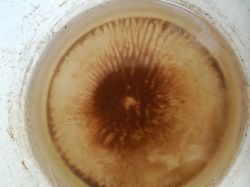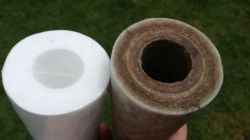mkmt81 wrote:An exaggeration is 40 liters of used water per 5 liters of purified water, the current filters do not consume such a large amount of water, but the fact is that the used water is overflow which is drained into the sewage system.
What does not change the fact that after what you see on the pre-filters, replacing them will convince you to the profitability of such an investment. When replacing the pre-filters, they smell like that and there is so much rubbish of various kinds, from typically mechanical impurities to algae, not forgetting what you cannot see, that someone who has such a filter will sooner go to the store for "mineral" water than drink what comes from tap. Mineral in quotation marks because what is sold in stores is water after cleaning through an RO filter and passed through a mineralizer.
By the way, I pour water into the kettle and coffee machine from behind the RO filter, to drink only the water from the mineralizer, behind the filter there is a double tap, one goes mineralized from the other, practically clean. Which is clearly visible in the kettle and coffee machine (no sediment whatsoever). However, drinking RO water alone is not recommended - just as drinking distilled water is not recommended.
Or maybe it is so that in your opinion "pollutants that stink" are really needed by the human body, or at least they do not harm it? Because everything organic decomposes and stinks over time ...
Do you really think that the bottled water in the stores is after some filters or is it taken directly from a hole in the ground?




